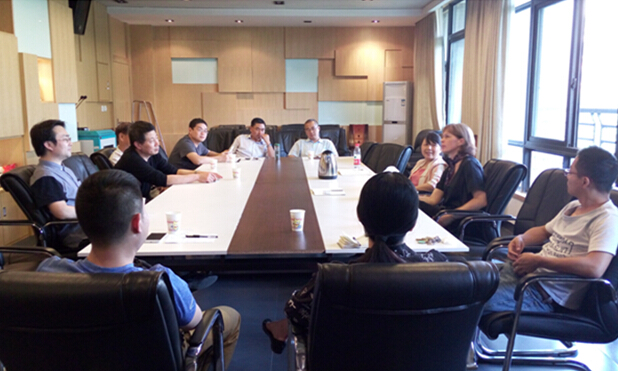At the 4:00pm of 29th, April ,2015, Gerda Wielander, a Head of Modern Languages and Cultures at the University of Westminster and Associate Professor in Chinese Studies, came from UK and was invited to our School of Arts and Communication. She made a general introduction about the University of Westminster and situation and development of modern language and culture.University of Westminster, the one of the largest universities in UK, was founded in 1837, and had a 160 years of history of enrolling international students, which now has 24,000 students. In May, 2000, University of Westminster won the Queen’s Award for Enterprise International Trade, and it was entitled as the UK’s leading modern university for four consecutive years.
Prof. Gerda generally introduced the college schools, the curriculum and student composition. Recentlly, the Chinese students in Modern Chinese and Culture Department accounted for 25% to 30%, most of who learned the discipline of translation and interpretation and so on. University of Westminster was a mumber of EMCI, and earned a famous name for its discipline of translation and interpretation.
Prof. Gerda was a sinologist and could speak Chinese fluntly. From an international perspective, she discussed with our School’s leaders and teachers about the contradiction between humanistic elite education and vocational technical education, the similarities and differences in terms of the assessment of teachers between China and UK, and with other aspects. She hoped that two countries could learn from each other’s strengths, to make language education get more attention and development.
Li Gang, the Secretary of our School of Arts and Communication, gave a general introduction about our uinversity and shool, and talked about some pressure that our Humanities was facing. So our shool also hoped to cooperate with University of Weatminster to promote the development of Humanities.

Text by Wang Liping
